HVAC Companies Patcham
Top 10 Air Conditioning Services in Patcham
Receive up to 3 HVAC Companies quotes for your project today! Compare profiles, reviews, accreditations, portfolio, etc... and choose the best offer.
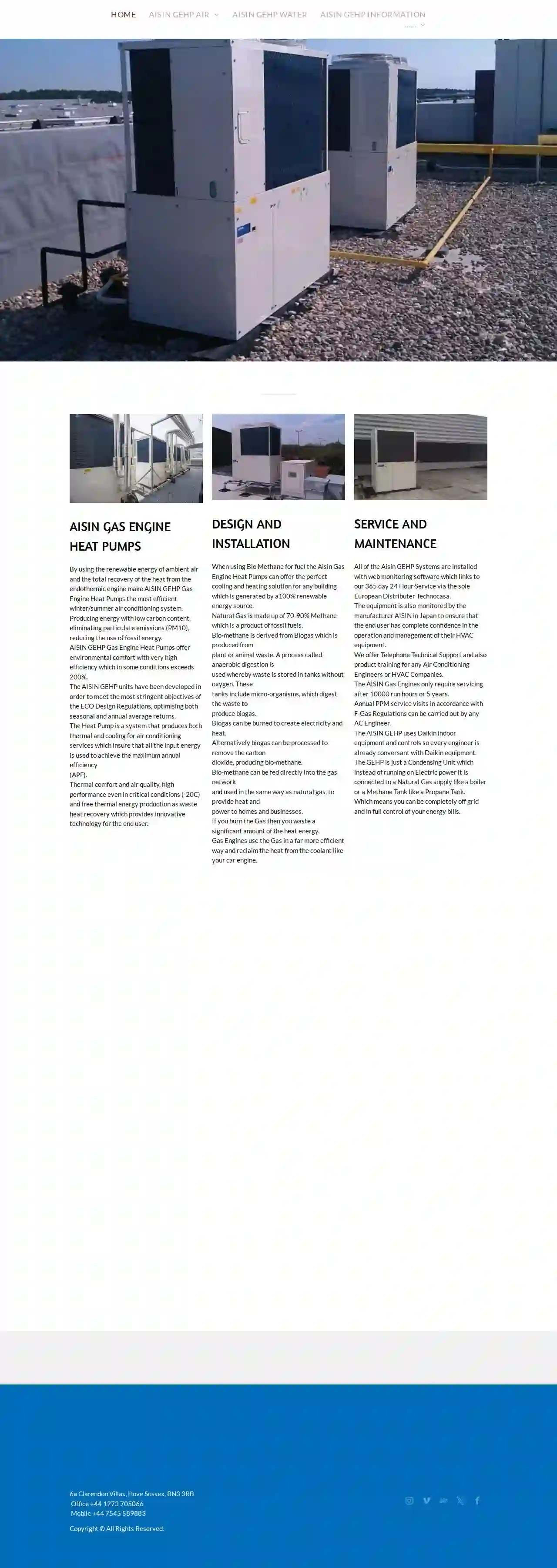
TOOMEYS
51 reviewsHove, GBAISIN GAS ENGINE HEAT PUMPS By using the renewable energy of ambient air and the total recovery of the heat from the endothermic engine make AISIN GEHP Gas Engine Heat Pumps the most efficient winter/summer air conditioning system. Producing energy with low carbon content, eliminating particulate emissions (PM10), reducing the use of fossil energy. AISIN GEHP Gas Engine Heat Pumps offer environmental comfort with very high efficiency which in some conditions exceeds 200%. The AISIN GEHP units have been developed in order to meet the most stringent objectives of the ECO Design Regulations, optimising both seasonal and annual average returns. The Heat Pump is a system that produces both thermal and cooling for air conditioning services which insure that all the input energy is used to achieve the maximum annual efficiency(APF). Thermal comfort and air quality, high performance even in critical conditions (-20C) and free thermal energy production as waste heat recovery which provides innovative technology for the end user. DESIGN AND INSTALLATION When using Bio Methane for fuel the Aisin Gas Engine Heat Pumps can offer the perfect cooling and heating solution for any building which is generated by a100% renewable energy source. Natural Gas is made up of 70-90% Methane which is a product of fossil fuels. Bio-methane is derived from Biogas which is produced from plant or animal waste. A process called anaerobic digestion is used whereby waste is stored in tanks without oxygen. These tanks include micro-organisms, which digest the waste to produce biogas. Biogas can be burned to create electricity and heat. Alternatively biogas can be processed to remove the carbon dioxide, producing bio-methane. Bio-methane can be fed directly into the gas network and used in the same way as natural gas, to provide heat and power to homes and businesses. If you burn the Gas then you waste a significant amount of the heat energy. Gas Engines use the Gas in a far more efficient way and reclaim the heat from the coolant like your car engine. SERVICE AND MAINTENANCE All of the Aisin GEHP Systems are installed with web monitoring software which links to our 365 day 24 Hour Service via the sole European Distributer Technocasa. The equipment is also monitored by the manufacturer AISIN in Japan to ensure that the end user has complete confidence in the operation and management of their HVAC equipment. We offer Telephone Technical Support and also product training for any Air Conditioning Engineers or HVAC
- Services
- Why Us?
- Gallery
Get Quote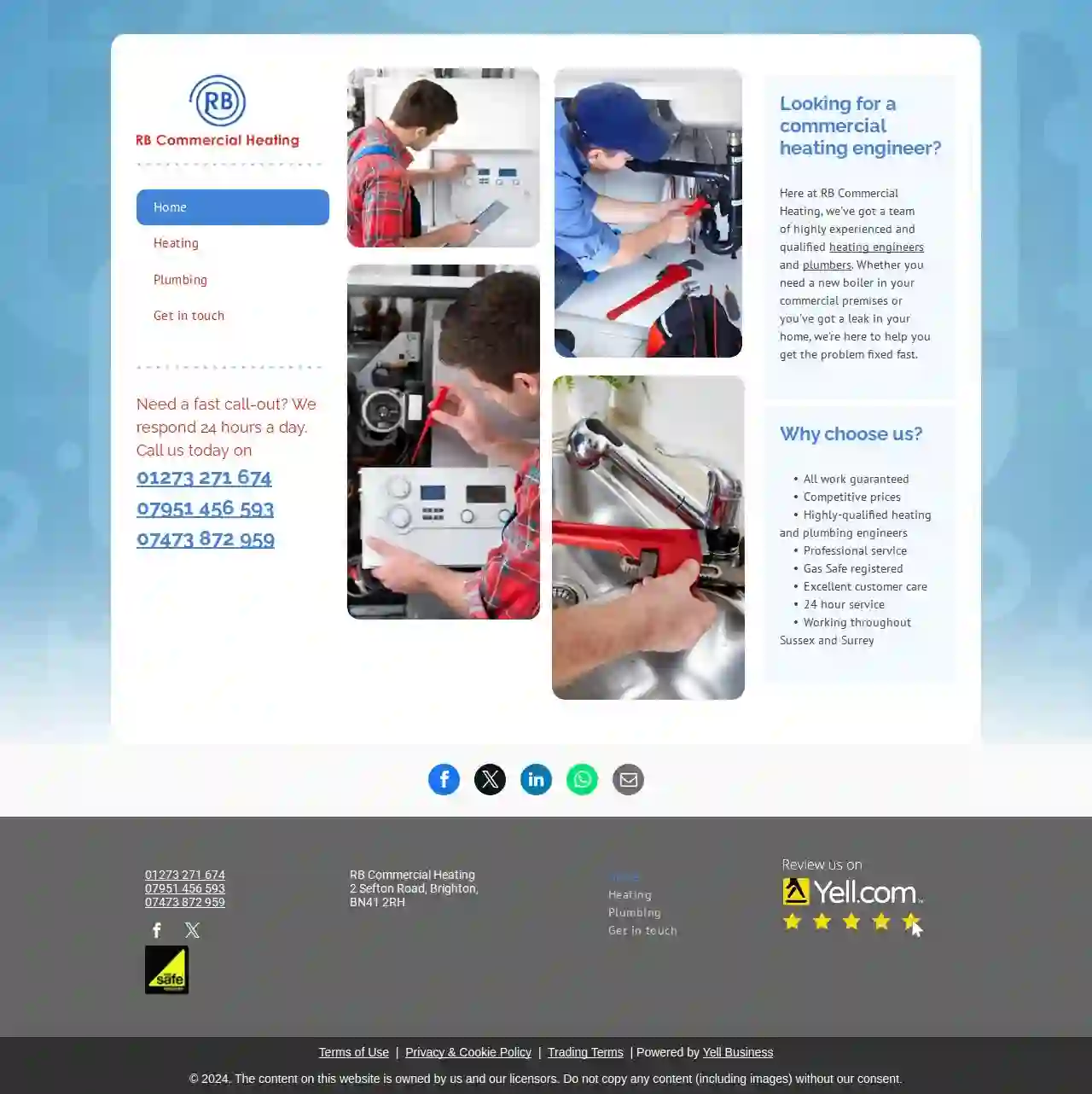
R B Commercial Heating
2 Sefton Road, brighton, BN41 2RH, GBHere at RB Commercial Heating, we've got a team of highly experienced and qualified heating engineers and plumbers. Whether you need a new boiler in your commercial premises or you've got a leak in your home, we're here to help you get the problem fixed fast. Why choose us? All work guaranteed Competitive prices Highly-qualified heating and plumbing engineers Professional service Gas Safe registered Excellent customer care 24 hour service Working throughout Sussex and Surrey
- Services
- Why Us?
- Gallery
Get Quote
E D R Heating Services Ltd
58 reviews100 Preston Road, Brighton, BN1 1AA, GBEDR Heating Services is a team of expert heating engineers serving Brighton, Hove, and Sussex. We specialize in providing bespoke heating solutions for homes, utilizing the latest, innovative, and energy-efficient heating technology. Our services encompass both renewable and traditional heating systems, ensuring we can cater to a wide range of needs and budgets. We pride ourselves on our high level of expertise, experience, and commitment to excellent customer service. We offer free advice on the best heating solutions for your home and can provide a no-obligation consultation to discuss your specific requirements.
- Services
- Why Us?
- Accreditations
- Gallery
Get Quote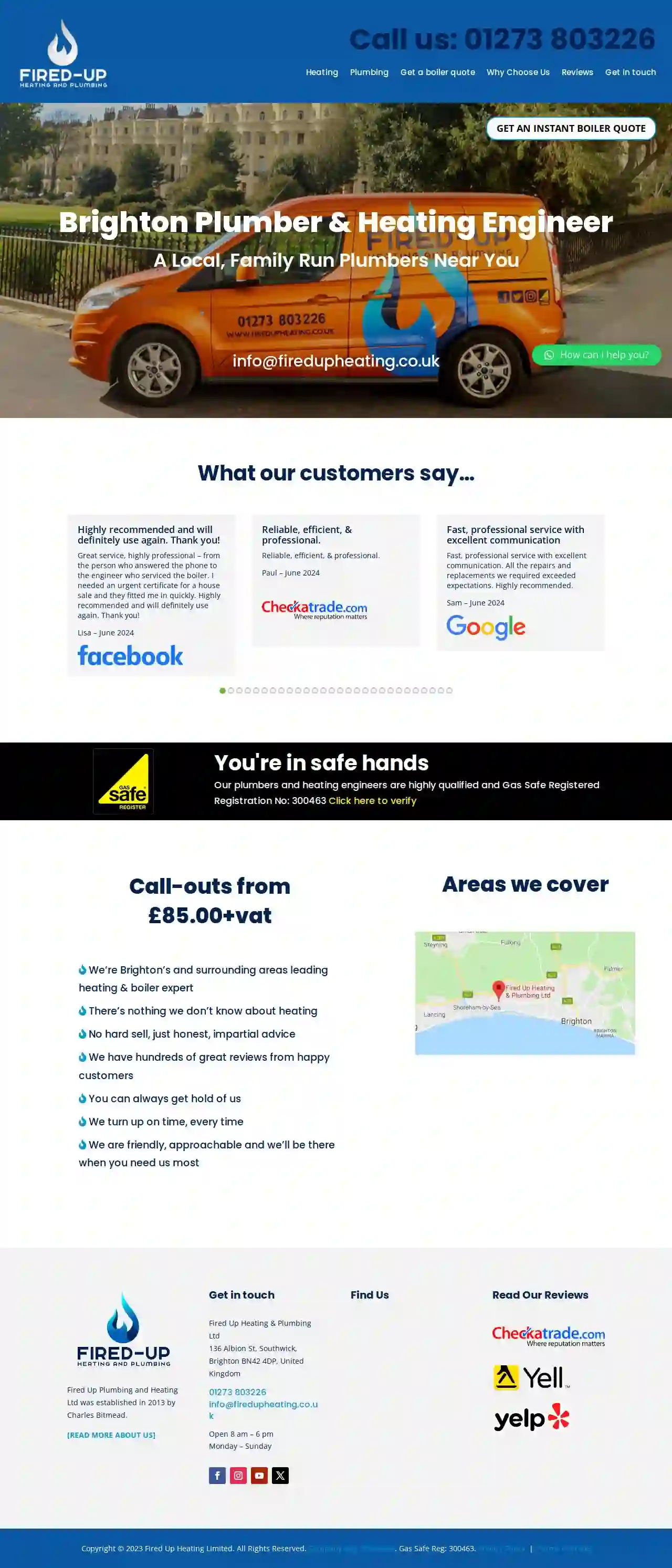
Fired Up Heating & Plumbing Ltd
4.9132 reviews136 Albion St, Southwick, BN42 4DP, GBFired Up Plumbing and Heating Ltd was established in 2013 by Charles Bitmead. We are a local, family run plumbers near you. We offer a range of services including heating, plumbing and boiler installations. We pride ourselves on providing a reliable, efficient and professional service to all our customers. Our team of experienced engineers are Gas Safe registered and fully qualified to carry out all types of plumbing and heating work. We are committed to providing a high quality service at competitive prices. Get in touch today for a free quote.
- Services
- Why Us?
- Accreditations
- Our Team
- Testimonials
- Gallery
Get Quote
Brighton & Hove Athletic Club
4.19 reviewsBrighton, GBWelcome to Brighton and Hove AC, the largest and oldest Athletic Club in the area. We are a vibrant and thriving club which strives to promote health and well-being in the community through athletic excellence. Our skilled and experienced coaching staff support athletes of all abilities in the disciplines of track and field, cross-country and road running. Our athletes, ranging in age from nine to 90, take part in competitions and leagues year-round. We train at Withdean Stadium on Tuesday (17:00-20:15) and Thursday (17:00-20:00) evenings and on other days and times by arrangement with individual coaches. Come along and talk to some of our athletes and coaching staff and see how you can get involved in this great sport.
- Services
- Why Us?
- Our Team
- Gallery
Get Quote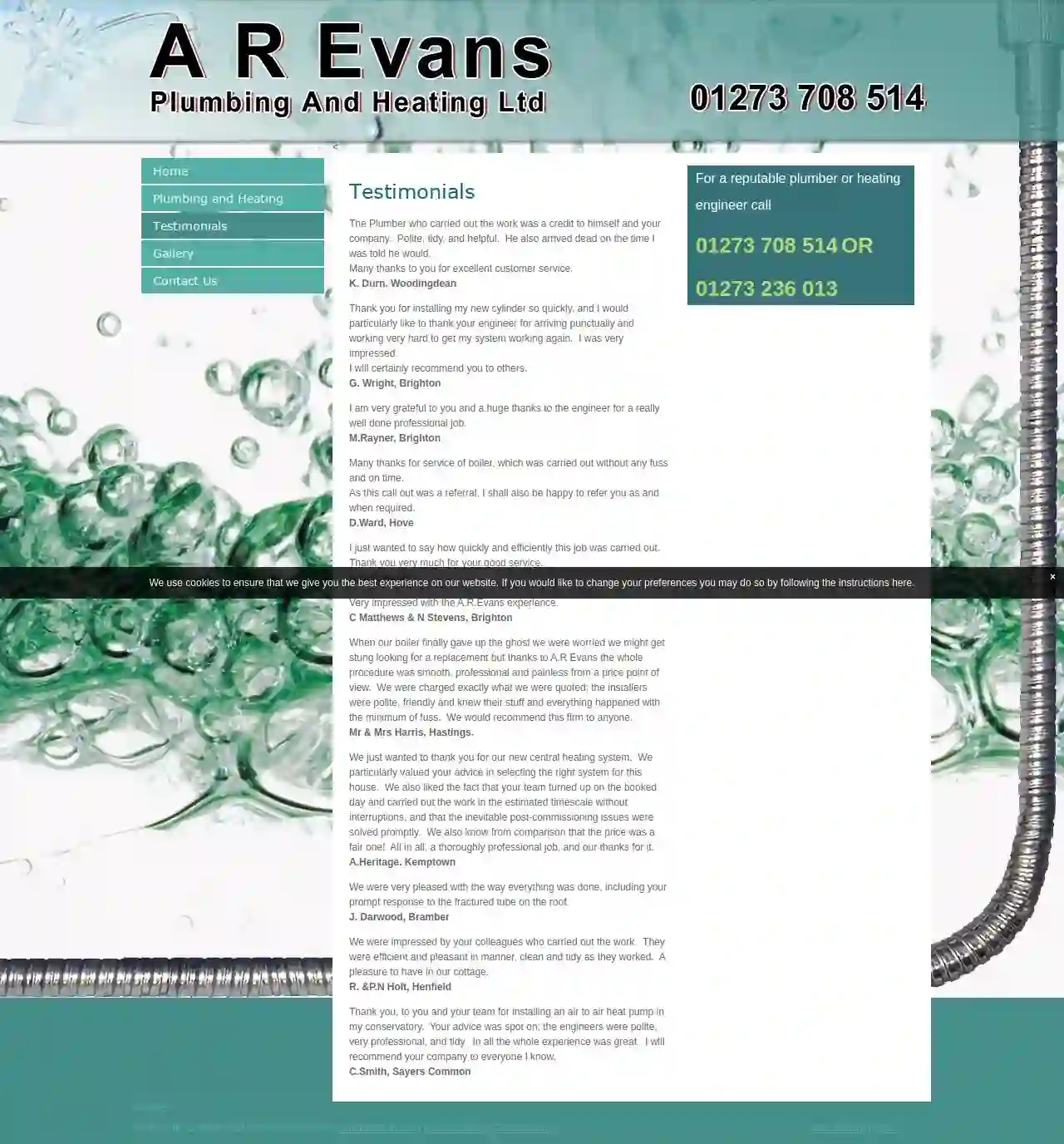
Evans a R
4.717 reviews3 Burlington Parade, Brighton, BN41 2DJ, GBA R Evans Plumbing And Heating Ltd is an established and well respected plumbing and heating company providing those within the Brighton area with an efficient and effective service.We specialise in all aspects of the business ranging from central heating installation and boiler maintenance. Domestic, industrial and commercial work also carried out.
- Services
- Why Us?
- Testimonials
- Gallery
Get Quote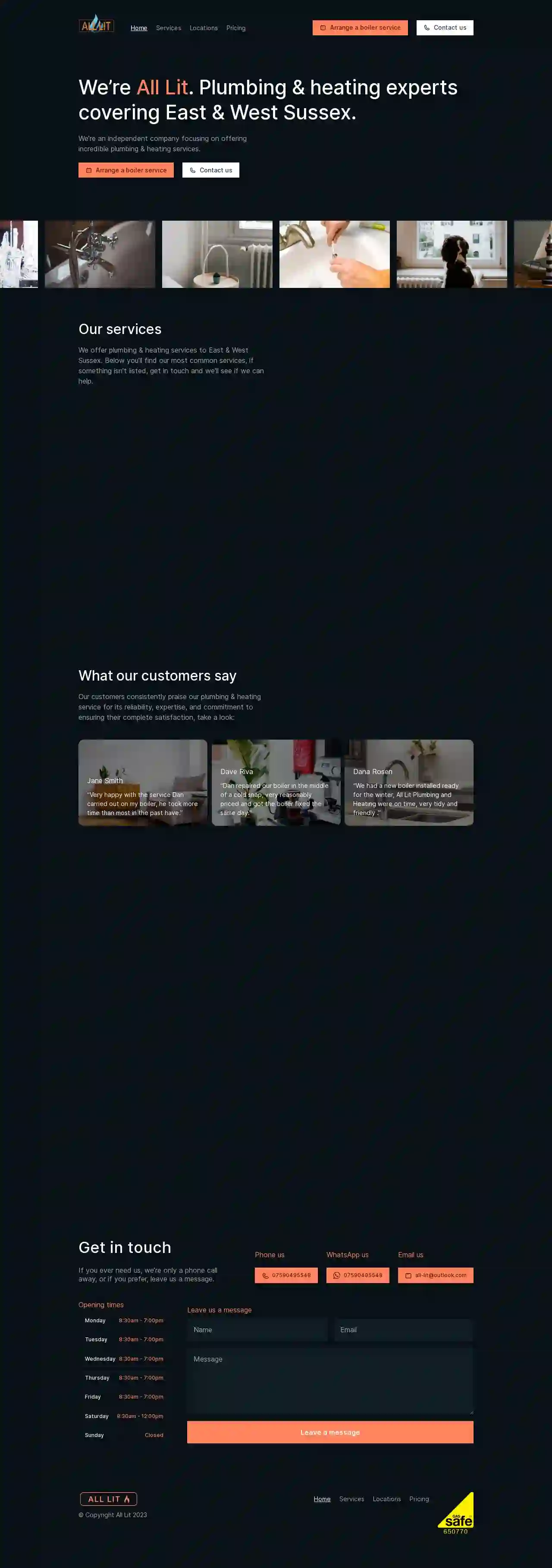
All Lit Plumbing & Heating
Hove, GBWe’re All Lit. Plumbing & heating experts covering East & West Sussex. We’re an independent company focusing on offering incredible plumbing & heating services.
- Services
- Why Us?
- Testimonials
- Gallery
Get Quote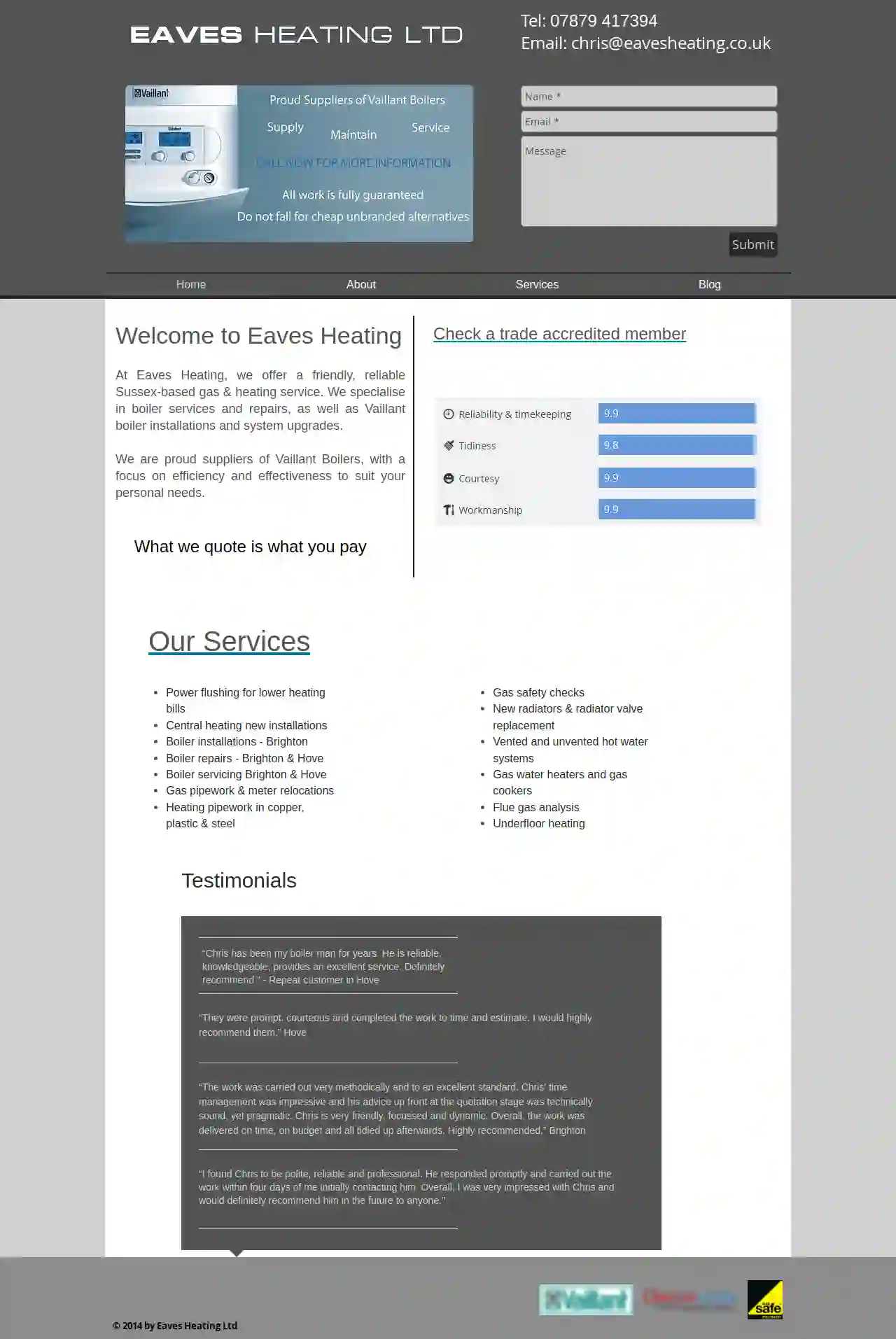
Eaves Heating Ltd
51 reviewsHove, GBWelcome to Eaves Heating, a friendly, reliable Sussex-based gas & heating service. We specialise in boiler services and repairs, as well as Vaillant boiler installations and system upgrades. We are proud suppliers of Vaillant Boilers, with a focus on efficiency and effectiveness to suit your personal needs. What we quote is what you pay. Check a trade accredited member.
- Services
- Why Us?
- Our Team
- Testimonials
- Gallery
Get Quote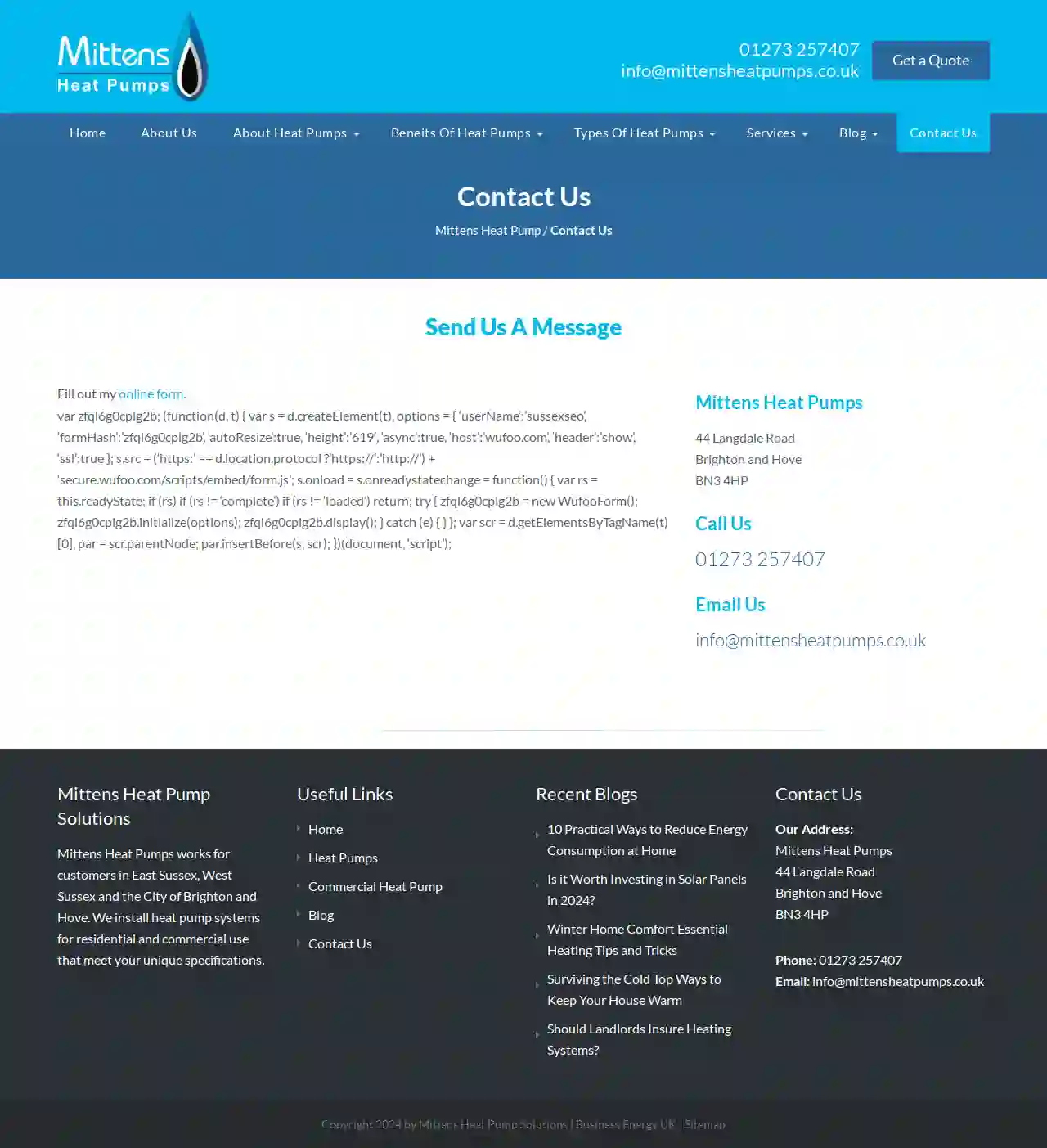
Mittens Heat Pump
44 Langdale Road, Brighton and Hove, BN3 4HP, GBMittens Heat Pump Solutions is a heat pump installer and supplier based in East Sussex, West Sussex, and the City of Brighton and Hove. We design, supply, install, commission, and maintain bespoke heat pump solutions for residential and commercial properties. Our team of experienced heat pump engineers and installers has a massive amount of experience in renewable energy. We work with customers to provide cost-effective solutions that meet their unique specifications. Our heat pumps are electric devices that extract heat from the air, ground, or water and provide all-year-round comfort. They are a green solution that doesn't burn fossil fuels, eliminating greenhouse gas emissions and carbon monoxide production. We are certified by RECC, MCS, WIAPS, and Daikin, and we have a strong commitment to providing excellent customer service and support.
- Services
- Why Us?
- Accreditations
- Gallery
Get Quote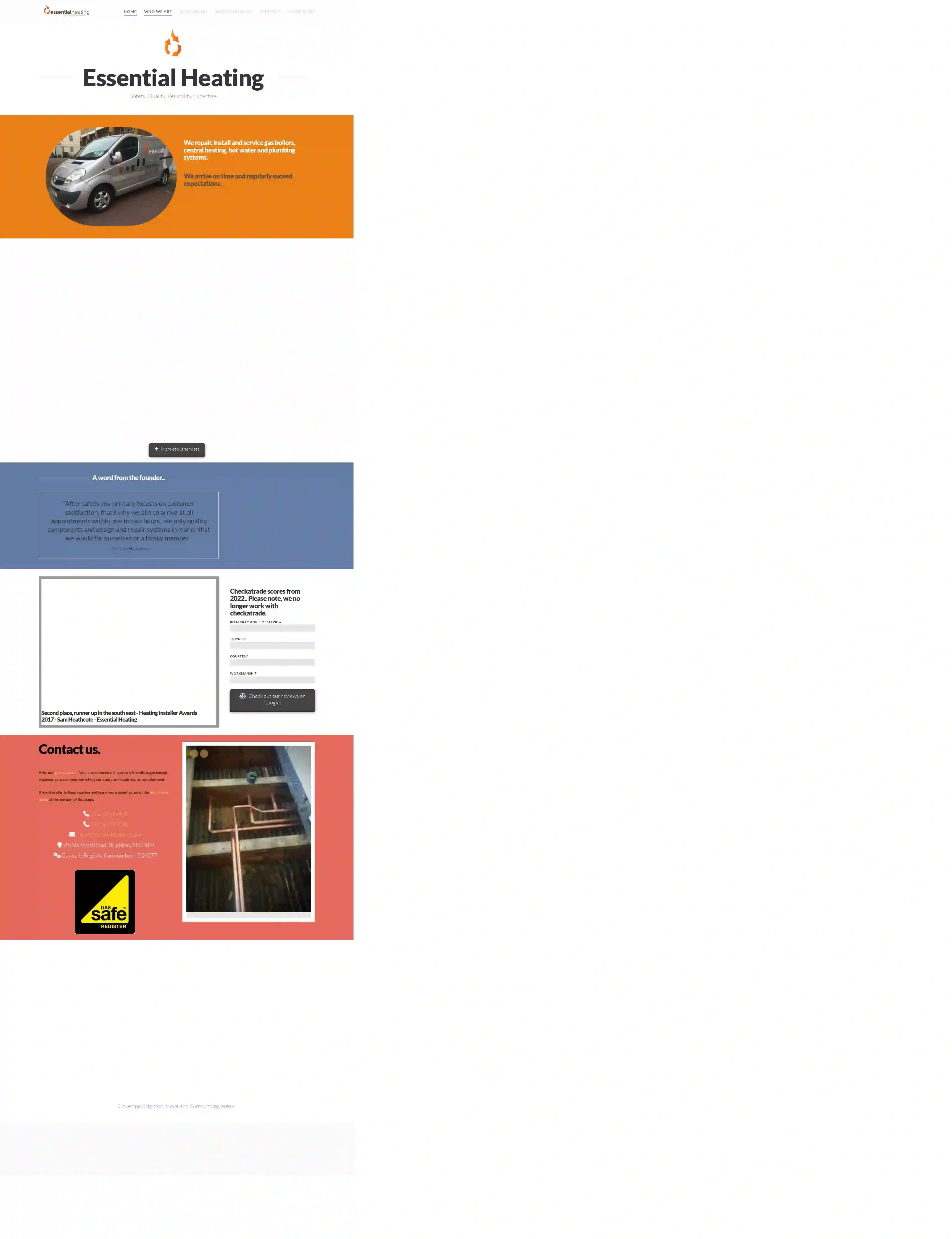
Essential Heating
555 reviews89 Stanford Road, Brighton, BN1 5PR, GBEssential Heating is a local business that provides safety, quality, reliability, and expertise in gas boilers, central heating, hot water, and plumbing systems. We repair, install, and service these systems, and our team of experienced engineers is dedicated to exceeding customer expectations. With a focus on customer satisfaction, we aim to arrive at all appointments within one to two hours and use only quality components. Our founder, Mr. Sam Heathcote, is a second-place winner in the South East - Heating Installer Awards 2017 and has a strong reputation for reliability and timekeeping. We are proud to be a Gas Safe registered business, covering Brighton, Hove, and surrounding areas.
- Services
- Why Us?
- Accreditations
- Our Team
- Gallery
Get Quote
Over 12,692+ HVAC Businesses onboarded
Our HVAC experts operate in Patcham & surroundings!
HVACCompaniesHub has curated and vetted the Best HVAC Companies in Patcham. Find a top & trustworthy business today.
Frequently Asked Questions About HVAC Companies
- Split Systems: The most common type, consisting of an outdoor unit (condenser/compressor) and an indoor unit (air handler/furnace).
- Heat Pumps: Provide both heating and cooling by transferring heat between indoor and outdoor air.
- Ductless Mini-Splits: Ideal for homes without existing ductwork or for adding heating and cooling to specific zones.
- Packaged Units: A single unit that contains all the system's components.
- Geothermal Heat Pumps: Use the earth's stable temperature to provide highly efficient heating and cooling.
What is an AFUE rating, and why is it important?
What is the best temperature to set my thermostat in summer?
What are the different types of HVAC systems?
What are the benefits of a programmable thermostat?
What is an AFUE rating, and why is it important?
What is the best temperature to set my thermostat in summer?
What are the different types of HVAC systems?
- Split Systems: The most common type, consisting of an outdoor unit (condenser/compressor) and an indoor unit (air handler/furnace).
- Heat Pumps: Provide both heating and cooling by transferring heat between indoor and outdoor air.
- Ductless Mini-Splits: Ideal for homes without existing ductwork or for adding heating and cooling to specific zones.
- Packaged Units: A single unit that contains all the system's components.
- Geothermal Heat Pumps: Use the earth's stable temperature to provide highly efficient heating and cooling.